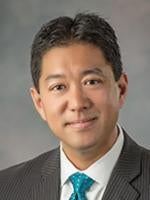Overtime claims that a former LensCrafters employee brought against a California franchise led the Ninth Circuit to tweak arbitration rules. The divided Ninth Circuit panel reversed the district court’s order granting defendant Luxottica Retail North America, Inc.’s motion to compel arbitration of claims and dismissing plaintiff Shukri Sakkab’s first amended complaint, in a putative class action raising class employment-related claims and a non-class representative claim for civil penalties under the Private Attorney General Act (PAGA).
Mr. Sakkab filed the complaint in San Diego against the defendant, alleging the LensCrafters franchise misclassified employees as supervisors so they would be exempt from overtime and rest and meal breaks. Citing a dispute-resolution agreement, the defendant successfully compelled arbitration. Though Mr. Sakkab did not dispute that his employment claims were arbitrable, Mr. Sakkab argued that the portion of the alternative dispute resolution agreement prohibiting him from bringing any PAGA claims on behalf of other employees was unenforceable under California law. Though the U.S. Supreme Court found in Concepcion v. AT&T Corp., 131 S. Ct. 1740 (2011), that the Federal Arbitration Act (FAA) pre-empts California's law on unconscionable contracts, the California Supreme Court announced the rule in Iskanian v. CLS Transportation Los Angeles, LLC, 59 Cal. 4th 348 (2014), that barred the waiver of representative claims under PAGA.
As such, the Ninth Circuit panel held that the FAA did not preempt the California rule announced in Iskanian. The panel opined that following the logic of AT&T Mobility LLC v. Concepcion, the Iskanian rule is a “generally applicable” contract defense that may be preserved by the FAA’s § 2 savings clause, provided it did not conflict with the FAA’s purposes. Further, the panel found the Iskanian Rule did not conflict with the FAA’s purposes. The court stated that "[I]n sum, the Iskanian rule does not conflict with the FAA, because it leaves parties free to adopt the kinds of informal procedures normally available in arbitration. It only prohibits them from opting out of the central feature of the PAGA’s private enforcement scheme–the right to act as a private attorney general to recover the full measure of penalties the state could recover.” Thus, the panel’s majority suggests that an arbitration policy potentially be drafted so that PAGA claims, could be compelled to arbitration, so long as claims of a representative nature under PAGA are not thereby waived.
In a strongly worded dissent, Judge N.R. Smith stated he would hold that the majority should have applied Concepcion and deferred to the FAA’s “liberal federal policy favoring arbitration.” Judge N.R. Smith said, the statements of the FAA's purposes "would require strict enforcement of all terms contained in an arbitration agreement, including terms that are unenforceable under generally applicable state law." Further, the majority's holding "essentially ignores" Concepcion, and "interferes with the parties' freedom to craft arbitration in a way that preserves the informal procedures and simplicity of arbitration."
"The Iskanian rule interferes with the fundamental attributes of arbitration and thus creates a scheme inconsistent with the FAA.” Therefore, Judge N.R. Smith would hold that the Iskanian rule is preempted by the FAA, and he would affirm the district court.
The decision highlights the continuing struggles employers face in dealing with arbitration policies in California.









 />i
/>i

